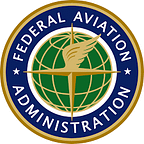Seeing is Believing
In 1998, Dr. Barry Hyde suffered an accident the resulted in the loss of his eyesight. Since then, he has taken incredible leaps to improve aviation safety.
I’m very blessed…
This has been a common refrain Dr. Barry Hyde, a visually impaired aviation safety analyst for the FAA, who nearly lost his life on June 1, 1998. At the time, he was a 26-year-old flight instructor in North Carolina when he boarded a 1965 Piper Twin Comanche with a pilot who wanted to practice his instrument skills. About a half hour after takeoff, the plane’s engines stopped and the aircraft crashed into a patch of trees near Roanoke, Va.
Dr. Hyde was initially pronounced dead on arrival at a hospital, but a medical team revived him. The accident left him with no sight and no ability to taste or smell. He was no longer able to fly a plane, drive a car, or engage in other everyday activities.
However, after experiencing a series of challenges and triumphs, he went on to complete a doctorate in business administration with a specialization in aeronautical safety this year. While earning his doctorate in business administration with a specialization in aeronautical safety, his research centered on his desire to prevent other similar accidents. The 127-page dissertation focuses on the relationship between the attitudes of pilots and the execution of flight safety checklists before takeoffs.
“Checklists were not being followed by pilots,” Dr. Hyde said. “I wanted to do research to show how this is a problem and how it is still occurring. That’s exactly what my dissertation proved.”
A doctorate was not the only accolade Dr. Hyde earned through hard work and determination. In 2000, Dr. Hyde became the first blind advanced ground instructor (AGI) and instrument ground instructor (IGI) certified by the FAA. Four years later, he earned a bachelor’s of arts degree in history from the University of North Carolina at Charlotte. Then in 2007, he became the first visually impaired student to earn a master’s of science degree in aeronautics with specializations in aviation safety and aviation operations from Embry-Riddle Aeronautical University.
When asked, how it feels to have overcome such a tragic event and be as successful as he is, Dr. Hyde humbly stated:
“I am only successful because of the great people God placed in my life at the right time — in and outside of the workplace. I work amongst greatness, so I am just grateful to be of assistance. Outside of work, people stepped up to help me accomplish things a blind person had never done. For example, all three universities created audible books for me. An abundance of blessings I’ve been given, so I won’t take all of the credit for my success. I feel blessed and thankful.”
This year, Dr. Hyde received a Distinguished Alumni Award from Embry-Riddle Aeronautical University, an award given to seven representatives of a forty-thousand alumni body.
Dr. Hyde joined the agency in March 2010, and his Labrador guide dog, Bravo, accompanies him to the office. “Bravo is part of [the FAA] because he allows me to be here. Continuing to work is a joy,” said Dr. Hyde.
Dr. Hyde continues to pursue new goals. He has a book coming out titled, See New Horizons: A Blind Aviators Journey after Tragedy. “In my book, I talk about all of my accomplishments and all of my speeches,” said Dr. Hyde. “I want people to be inspired and to never give up on their goals and dreams.”
Dr. Hyde also plans to publish children’s books on how to treat a guide dog team.
A lesson in faith and perseverance lies in his experience. “I would have still been flying for a company without the accident,” Dr. Hyde said. “The doctoral degree would not have been achieved.”
He added, “I don’t consider myself disabled; I am differently abled,” said Dr. Hyde. “And to all of the other differently abled people in the world: contribute the best way you can to the things that you know how to do. Just because you have a disability, you are not disadvantaged. If you have the knowledge, you probably know how to do it better than others. So, don’t be afraid, share your knowledge; share your expertise!”
